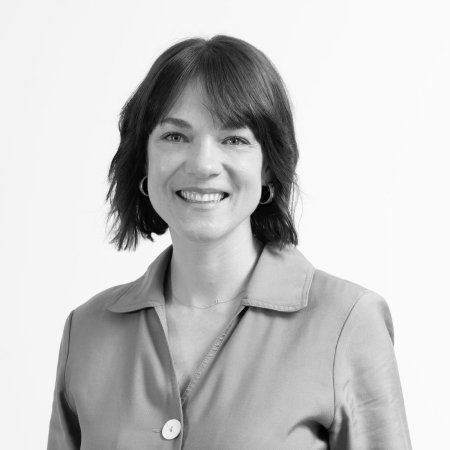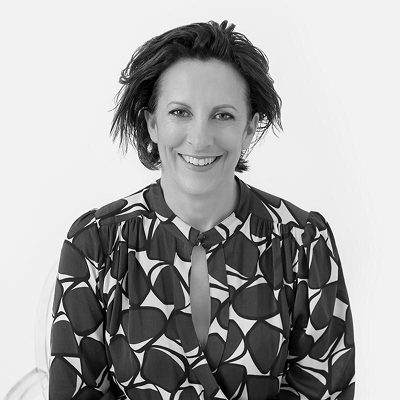
ASKING FOR A FRIEND
Should I get in touch with my workplace's Employee Assistance Program?
ASKING FOR A FRIEND - QUESTION
Many creatives wonder whether it's actually okay to contact their Employee Assistance Program, often worrying their problems aren't serious enough or concerned about workplace privacy. Martine Beaumont, founder and CEO of Select Wellness with over 30 years of experience in workplace mental health, and Nicky Bryson, Principal and Co-founder of Sayers Brand Momentum and founder of The Trenches mentoring program, tackle these concerns with host Andy Wright, founder of Never Not Creative. They discuss why reaching out early is crucial, how EAP privacy really works, the importance of finding the right counsellor fit, and how to make the most of these valuable workplace resources. This honest conversation addresses the common barriers that stop people from getting the support they deserve.
If you've been wondering whether it's actually okay to reach out to your company's Employee Assistance Program, you're not alone. Many of us in the creative industry have heard about EAPs but aren't quite sure when or how to use them. Maybe you're worried your problems aren't "serious enough" or you're concerned about privacy and whether your employer will find out.
The short answer is yes, it's absolutely okay to contact an EAP. In fact, it's one of the smartest things you can do for your wellbeing. These programs exist specifically to support you, and understanding how they work can help you make the most of this valuable resource.
This question was answered by Martine Beaumont, founder and CEO of Select Wellness and Select Counsellors, with over 30 years of experience as a psychotherapist, executive coach and counsellor specialising in workplace mental health, and Nicky Bryson, Principal and Co-founder of Sayers Brand Momentum, a highly experienced brand and consumer strategist who founded The Trenches mentoring program. The discussion was hosted by Andy Wright, founder of Never Not Creative and CEO of Streamtime, who has been championing mental health awareness in the creative industry.
The sooner you reach out, the better
One of the biggest barriers to using EAPs is the feeling that your problems aren't "bad enough" to warrant professional help. Martine addresses this head-on: "With every sort of mental health issue, the sooner you get in, the more effective and quicker your recovery is."
She explains that people often hold themselves back by thinking, "Oh well, my problem's not as bad as that, or you know, there's wars all over the world and there's droughts, how can I be complaining and needing to see somebody?" But here's the thing: if you're struggling, you're struggling, and you deserve support regardless of how your problems compare to others.
The beauty of getting help early is that it prevents small issues from becoming bigger ones. Think of it like going to the doctor when you first notice symptoms rather than waiting until you're really unwell.
Your privacy is protected
One of the most common concerns about EAPs is privacy. Will your boss know you've used it? Will it affect your job prospects? Martine is clear about this: "It is completely anonymous."
She explains that EAP providers are "so strict" about confidentiality that they won't even report back basic demographics like job divisions or gender to companies, especially in smaller organisations. "It needs to be completely de-identified, so it's just a relationship between you and your EAP provider. All the company does is literally pay the bill that they're sent once a month with no names."
This means you can speak freely about work stress, personal issues, or anything else that's affecting your wellbeing without worrying about professional repercussions.
Finding the right fit matters
Not every counsellor or psychologist will be the right match for you, and that's completely normal. Martine encourages what she calls "therapist shopping": "If you go in and you don't like the person you're seeing, you can change to someone else. Lots of psychologists are really good, but they might not be good for you."
Don't give up if the first person doesn't feel right. As Martine puts it, "Put them under pressure. Say hey, that person's not good for me, I want someone else. You're allowed to." Finding someone who gets you and has the right skills can make all the difference.
How many sessions do you get?
The number of EAP sessions varies by company. Martine mentions working with companies that offer anywhere from three sessions to thirteen sessions. She notes that "it does take on average six to ten [sessions] for really proper change to happen," so if your company offers fewer sessions, don't worry. Even a few sessions can provide valuable tools and insights.
Many companies are extending their EAP offerings, and some also provide wellbeing check-ins as a gentler entry point. If your company offers these, Martine suggests taking advantage: "If you're wondering whether to see someone, you'll be able to find out there."
Making EAPs more visible
The conversation highlights that EAPs often aren't well-promoted. Andy notes, "I feel like they're not advertised. I feel like I've worked in places where they are and they're never told, like you find out about them."
Martine agrees that these services are often relegated to "the back of toilet doors" rather than being presented as the valuable workplace perk they should be. If you're not sure whether your company offers an EAP, check with HR or look for information in your employee handbook or intranet.
Getting support through Never Not Creative Circles
If you're looking for ongoing peer support alongside or instead of professional counselling, Never Not Creative Circles might be perfect for you. These are small, confidential peer support groups for creatives, meeting monthly to share experiences and learn practical mental health skills. Circles create a safe, non-competitive space where you can connect with others who understand the unique pressures of creative work. Find out more about Circles and how to join.
When you need immediate help
If you're in crisis or need immediate support, don't wait for an EAP appointment. There are trained professionals available right now who can help you through whatever you're facing. Whether you're dealing with thoughts of self-harm, overwhelming anxiety, or just need someone to talk to urgently, reaching out for immediate help is always the right choice. Find crisis support numbers and resources here.
The Never Not Creative Support Line
If you're facing workplace issues like bullying, harassment, or unpaid work that are affecting your mental health, the Never Not Creative Support Line offers free initial legal advice. Sometimes workplace problems require both emotional support and practical action, and knowing your rights can be an important part of protecting your wellbeing. Learn more about the Support Line.
You deserve support
Using your EAP isn't a sign of weakness or failure. It's a smart, proactive step towards better mental health and wellbeing. These programs exist because employers recognise that supporting their staff's mental health benefits everyone.
Remember, you don't need to wait until you're in crisis to reach out. Whether you're dealing with work stress, personal challenges, or just want to build better coping strategies, EAPs are there for you. Your wellbeing matters, and taking care of your mental health is just as important as taking care of your physical health.
our guests
Industry Leader

Nicky Bryson
Telstra
Mental Health Expert

Martine Beaumont
Select Wellness
Host

